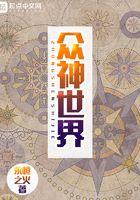奇书网>月亮说它忘记了故事梗概 > 第34章 徒步旅行 The Only Way to Travel Is on Foot(第1页)
第34章 徒步旅行 The Only Way to Travel Is on Foot(第1页)
第34章徒步旅行TheOnlyWaytoTravelIsonFoot
L。G·亚历山大L。G。Alexander
&agesofmanhaveallbeencarefullylabelledbyanthropologists。Desslike“Palaeolithieolithi”,eteatlysumupwholeperiods。Wheimeesfiststoturiohtury,theywillsurelychoosethelabel“LeglessMan”。Historiesofthetimewillgosomethihis,“Ihtury,peothowtousetheirlegs。Menandwomeincars,busesandtrainsfromaveryearlyage。Therewereliftsaorsinalllargebuildipeoplefromwalking。Thissituationwasforearth-dwellersofthattimebecauseoftheirextraordinarywayoflife。Inthosedays,peoplethoughtnothinghundredsofmileseachday。Butthesurprisingthingisthattheydidn'tusetheirlegseveonholiday。Theybuiltcablerailways,ski-liftsandroadstothetemountaiyspotsohweremarredbythepresenceecarparks。”
&urehistorybooksmightalsorecordthatweweredeprivedoftheuseofoureyes。Inetfromoher,wefailedtoseeanythingontheway。Airtravelgivesyouabird's-eyeviewoftheworld—orevehewihappeinyourway。Whenyoutravelbycarortrainablurredimageofthetrysidetlysmearsthewindows。Cardrivers,inparticular,areforeverobsessedwiththeurgetogoonandotostop。Isitthelureofthegreatmotorways,orwhat?Andasforseatravel,ithardlydeservesmention。Itisperfectlysummedupinthewordsoftheoldsong,“Ijoioseetheworld,andwhatdidIsee?Isawthesea。”Thetypitieth-turytravelleristhemanwhoalwayssays“I'vebeenthere。”Youme,mostevocativeplaamesintheworldlikeElDorado,Kabul,Irkutskandsomeoneisboundtosay“I'vebeenthere”—meaning,“Idrhitat100milesanhouroosomewhereelse。”
&ravelathighspeeds,thepresehing:youlivemaiurebeostofyourtimelookingforwardtatsomeotherplace。Butactualarrival,whenitisachieved,ismeaningless。Youwanttomoveonagain。Bytravellihis,yoususpendallexperieceasedtobeareality:youmightjustaswellbedead。Thetravelleronfoot,oherhaantlyi。Fandarrivihesamething:hearrivessomewherewitheverystephemakes。Heexperiemomentwithhiseyes,hisearsandthewholeofhisbody。Attheendofhisjourneyhefeelsadeliciousphysiess。Heknowsthatsound,satisfyingsleepwillbehis:thejustrewardofalltruetravellers。
人类学家已经谨慎地将过去的各个时代贴上了标签。他们用这些词汇,如“旧石器时代”“新石器时代”等简约地概括了整个时代的特征。当人类学家将注意力转向20世纪时,一定会选择这个标签——“无腿时代”。这段历史应该这样记载:“在20世纪,人们已忘记如何使用腿。从很小的时候开始,人类就用小汽车、公交车和火车代替了步行。所有的高层建筑物内都有电梯和自动扶梯,无需步行。由于其独特的生活方式,地球上的居民才会处于这种情形。在这个时代,对于一日步行几百英里,人们几乎不敢想象。并且,更令人惊讶的是,即使是去度假,人们也不会步行。他们在每一座大山山顶上,建造了电缆铁路、滑雪索道,并修建了公路。地球上所有的美景,都被大型停车场占用。”
未来的历史书也可能这样记载:我们也废弃了眼睛的用途。我们匆匆地从一个地方赶往另一个地方,对路上的一切视而不见。坐飞机旅行时,你可能有机会鸟瞰这个世界——可有时机翼刚好遮住了你的视线。当你坐小汽车或火车旅行时,可以瞥一眼窗外一闪而过的模糊的乡村景象。特别是汽车司机,总是强烈地希望不断地前进再前进,从没想过要停下来。是高速公路吸引人,还是别的什么呢?至于海上旅行,更不值一提。有这样一首老歌完美地将其概括出来:“我加入海军去看世界,看到了什么呢?我看到了大海。”20世纪最典型的旅行者总是这样说:“我到过那儿。”当你提到最遥远、最富于吸引力的地方的名字,如多伦多、喀布尔、伊尔库茨克等时,有人便会说道:“我曾去过那儿”——意思是说“我曾以时速100英里去某地时路过那儿。”
当你行驶在高速公路上时,现在就毫无意义了,你完全活在未来。因为,你的大部分时间都在期待着到达某地,当你真正到达,却又毫无意义,你再一次想继续前进。这样,你的旅行将一无所获,现在不再真实——你可能就跟死了一样。反过来,徒步旅行者则一直活在现在。对他们来说,旅行和拜访某地是同一回事,他一步一步地走向某地,用眼睛、耳朵和身体的每一部分去感受现在的每一刻。当他到达目的地时,虽然身体疲惫,却很愉悦。他知道他将会美美地睡上一觉,这是对真正的旅行者的奖励。
1。Therewere__________aorsinalllargebuildipeople__________walking。Thissituationwasforced__________earth-dwellersofthattimebecauseoftheirextraordinarywayoflife。In__________days,peoplethoughtnothinghundredsof__________eachday。
2。Whenyou__________athighspeeds,thepresentmeans__________:youlivemaiurebeostofyour__________lookingforwardtatsome__________place。Butactualarrival,__________itisachieved,ismeaningless。
1。在这个时代,对于一日步行几百英里,人们几乎不敢想象。
____________________________________
2。当你行驶在高速公路上时,现在就毫无意义了,你完全活在未来。
____________________________________
3。现在不再真实。
____________________________________
&imeesfiststoturiohtury,theywillsurelychoosethelabel“LeglessMan”。
turo:转移注意力
____________________________________
2。Cardrivers,inparticular,areforeverobsessedwiththeurgetogoonandotostop。
inparticular:特别;尤其是
____________________________________


